PORTO CANCER MEETING
PREVIOUS EDITIONS
25th PORTO CANCER MEETING 2018
PORTO CANCER MEETING 2018 | MENU
Speakers
25th PORTO CANCER MEETING 2018
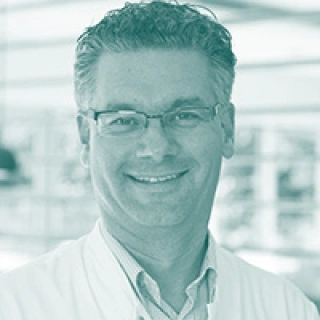
Christian U Blank
Department of Medical Oncology, Division of Immunology, The Netherlands Cancer Institute-Antoni van Leeuwenhoek Hospital (NKI-AVL), Amsterdam, The Netherlands
Christian Blank obtained his MD from the Medical School of the Technical University Munich, Germany, where he also completed his Doctoral thesis (summa cum laude) at the Department for Medical Microbiology in 1997. As a Junior House Officer (1997–1998) he held four positions at the Departments of Cardiology and of Radiology at the University Clinic Munich Rechts der Isar, Munich, the Accident and Emergency (A&E) Departments at the Royal Infirmary of Edinburgh, and the University of Birmingham, UK. He went on to attain the position of Physician at the Department of Haematology and Oncology, University of Regensburg, Germany (1998–2001). During 2001–2003, Dr Blank held a Postdoctoral Research Fellowship at the lab of Professor Thomas Gajewski, University of Chicago, IL, USA. Subsequently he was appointed as Physician and Research Group Leader at the Department of Haematology and Oncology, University of Regensburg (2003–2007). Dr Blank has obtained two Specialist Degrees in Internal Medicine (2007) and in Haematology/Oncology (2009). Since 2007, he has been appointed Staff Member at the Department of Medical Oncology, and Group Leader at the Division of Immunology, NKI-AVL, Amsterdam. In 2010, Dr Blank became University Lecturer (Privatdozent) at the University of Regensburg. He obtained his Master of Business Administration (MBA), from the University of Warwick, UK (2006). Dr Blank is committed to teaching, lecturing on medical courses at the NKI-AVL and the Medical School of the University of Regensburg. He is a member of four prestigious societies, including ESMO and ASCO. He has been an invited speaker at more than 80 national and international congresses, and is the author of more than 60 publications. His research interests broadly include targeted and biological response modifiers, and prognostic markers in melanoma and RCC.
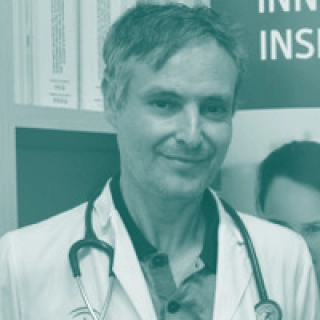
Manuel Cobo Dols
Medical Oncology Department, Hospital Regional Universitario Málaga, IBIMA, Málaga, Spain
Manuel Cobo Dols, Md, Phd is a medical oncologist at the Hospital Regional Universitario Málaga and IBIMA (Málaga, Spain). He is Licenciated in Medicine and Surgery from the University of Malaga, a Doctor of Medicine and Surgery in the Chair of Normal and Pathological Anatomy and an Internal Medical Resident of Medical Oncology at Carlos Haya Regional Hospital (period 1995-1998). He is also Chairman in the Medical Oncology Service at the University Regional Hospital, Málaga.
Dr Cobo Dols has an active participation in more than 90 research lines and national and international clinical trials in the lines of research carried out by the Medical Oncology Service of the Regional University Hospital Málaga (period 1995-2018). He has authored 55 publications in national journals and 45 publications in international journals of high impact, including Journal of Clinical Oncology, Lancet, JAMA, Lancer Oncology, Clinical Cancer Research, Annals of Oncology among others. He has more than 80 papers in national and international conferences and scientific meetings, as well as over 200 communications in national and international meetings. Dr Cobo Dols is a member of several societies, namely the Spanish Society of Medical Oncology (SEOM), Andalusian Society of Medical Oncology (SAC), International Society of Lung Cancer (IASL) and the Spanish Lung Cancer Group (GECP).
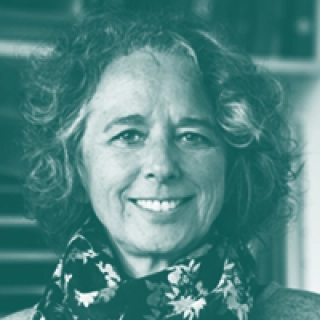
Jocelyne Demengeot
Instituto Gulbenkian de Ciência, Oeiras, Portugal
Jocelyne Demengeot scientific interests relate to the development and function of lymphocytes, with a particular focus on immune tolerance to organ and tissues, in health and disease. Her research team is most known for its contribution to the understanding of regulatory T cells origin and dynamics.Their approaches are based on the exploration of mouse models as well as collaborations with clinicians and further afield scientists. Jocelyne Demengeot acquired her PhD in Marseille, France, and post-doctoral training in Columbia U NY and Harvard Medical school Boston. She joined the Instituto Gulbenkian de Ciência at its 1998 reform, where she also assumed various managerial responsibilities. She endorsed one term of presidency of the Portuguese society of Immunology.
http://www.igc.gulbenkian.pt/jdemengeot
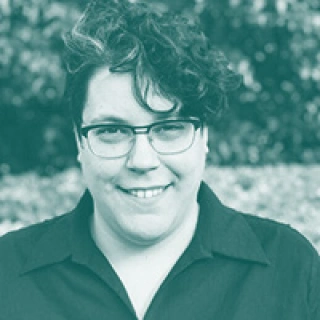
Shelly Kalaora
Department of Molecular Cell Biology, Weizmann Institute of Science, Israel
Shelly Kalaora is a PhD student in Prof. Yardena Samuels’s laboratory at the Molecular Cell Biology Department in the Weizmann Institute of Science. Her research focuses on the identification of neo-antigens in human melanoma samples and deciphering the cross talk between the HLA peptide repertoire and tumor infiltrating lymphocytes repertoire. In her studies she developed a pipeline that combines whole exome sequencing and HLA peptidomics in order to identify neo-antigens that are presented by melanoma cells. In addition she developed a new screening method to identify neo-antigens using binding affinity prediction algorithms.
Shelly has an MSc in life science from the Technion – Israel Institute of Technology, where she graduated summa cum laude.
The Samuels lab website: http://www.weizmann.ac.il/mcb/Samuels/home
The Weizmann institute of science web site: http://www.weizmann.ac.il/pages/
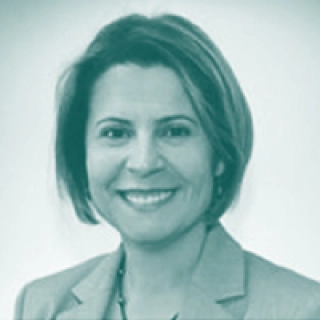
Ezogelin Oflazoglu-Gruyters
MedImmune
Ezogelin Oflazoglu-Gruyters, Ph.D., is head of external development and product development team lead at MedImmune, the global Biologics research and development arm of AstraZeneca. She is responsible for providing cross-functional leadership through approval of IO programs in the Oncology portfolio and external development. She has been a member and contributor on the Medimmune Oncology leadership team developing strategy and implementing oncology program development for IO and ADCs. Dr. Oflazoglu-Gruyters received her B.S. degree in Biological Sciences from Middle East Technical University, Ankara, Turkey and her Ph.D. in the field of Immunology from Roswell Park Cancer Institute, State University of New York at Buffalo. Prior to joining MedImmune in 2017, she worked in biotech and pharmaceutical industries such as Immunex/Amgen and Seattle Genetics, Merck and Celgene initially focusing her efforts on the discovery and validation of novel therapeutic targets in inflammation and oncology. She then moved on to develop novel and biosimilar therapeutics in a variety of solid tumors and hematologic malignancies including Adcetris, Keytruda, Vidaza. Ezo has over 20 years of research and industry experience in the field of Biologics, IO and ADCs.
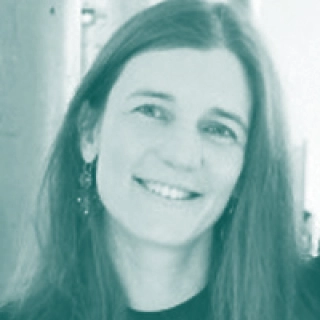
Maria José Oliveira
i3S-Institute for Research and Innovation in Health and INEB-Institute of Biomedical Engineering, University of Porto, Portugal
Maria José Oliveira is leading the Tumour and Microenvironment Interactions Group at i3S-Institute for Research and Innovation in Health and at INEB-Institute of Biomedical Engineering, University of Porto. She did her PhD studies on the role of the tumour microenvironment on colorectal cancer invasion, at Ghent University Hospital, in Belgium. Her PostDoc training was developed at Ipatimup and mainly dedicated to the role of E-cadherin and Helicobacter pylori on gastric cancer. Under the scope of Ciência 2007, she initiated at INEB, a new line of research focused on the role of of immune cells, in particular macrophages, on cancer cell invasion. She is currently an Investigator FCT, and has elucidated the role of macrophages on the promotion of cancer cell invasion, dissecting the underlying molecular mechanisms, highlighted the role of radiotherapy on macrophage polarization, and developed immunomodulatory therapeutic strategies to counteract cancer cell invasion. Her work was published over 60 papers in international peer-review journals and received several prizes, namely one of the L’Óreal for Women in Science, from Lóreal/UNESCO/FCT in 2009.
https://www.i3s.up.pt/tumour-and-microenvironment-interactions
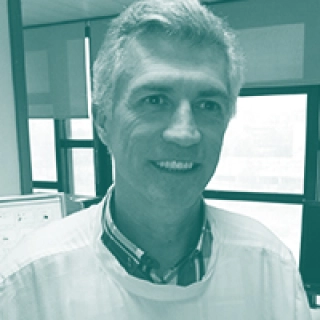
Carlos Palmeira
Instituto de Medicina Molecular – João Lobo Antunes, University of Lisbon
Carlos Palmeira is licentiated in Biology and he holds an MSc degree in Oncology and a PhD in Biomedicine from the University of Porto. He is a member of the research group of Pathology and Experimental Therapeutic of the IPO-Porto Research Center. This group is dedicated to the investigation of clinical and laboratory translation in oncological diseases. He participates in several research projects, mainly based in immunology and flow cytometric approaches. In parallel, he develops diagnostic activity in the Cellular Immunology Laboratory, belonging to the Department of Immunology of IPO-Porto. He is Associate Professor at the Health Faculty of University Fernando Pessoa, teaching in under and post-graduate degrees.
https://imm.medicina.ulisboa.pt/en/investigacao/labs/silva-santos-bruno-lab/
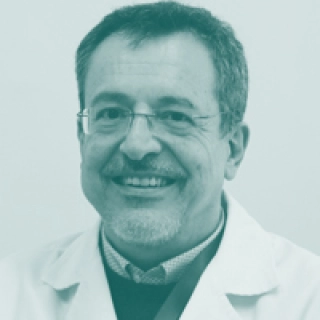
Fernando Schmitt
FMUP, i3S / IPATIMUP
Professor Fernando Schmitt is Professor of Pathology at the University of Porto, Senior Researcher and Head of Molecular Pathology Unit at IPATIMUP, President of the Portuguese Society of Cytology and General Secretary of the International Academy of Cytology (IAC). He has authored more than 435 papers in peer-review journals, 23 book chapters and he is editor of three books, one of molecular pathology, other of cytopathology and other of breast cytopathology. Prof Schmitt is widely considered a world-leading expert in cytopathology and breast cancer. Fernando was a fellow at the Karolinska Medical Hospital, Stockholm, and was Professor of Pathology at the University of São Paulo (USP), Brazil and University of Toronto, Canada. He was also Director of the Department of Medicine at Laboratoire national de santé, Luxembourg. His research work is on breast cancer, with emphasis on molecular markers, cell adhesion and invasion, therapeutic targets and mechanisms of resistance. In the last years, his research work has been dedicated to the study of molecular markers on cytological material. Fernando serves as Associate Editor of six major scientific journals and sits on the editorial board of many others. He has also been chair, president or scientific director of several major European, Portuguese and Brazilian scientific societies of pathology and cytology. Currently he is the Secretary-General of the IAC. Fernando received the prize of Educator of the Year 2011 by the Papanicoloau Society of Cytology (USA), also received the prize GOLDBLATT AWARD 2013 from the International Academy of Cytology.
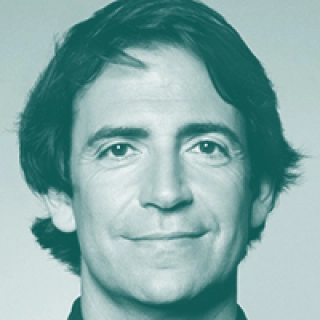
Bruno Silva-Santos
Instituto de Medicina Molecular – João Lobo Antunes, University of Lisbon
Bruno Silva-Santos is Vice-Director of Instituto de Medicina Molecular (iMM Lisboa), and Associate Professor of the Faculty of Medicine of the University of Lisbon. He did his PhD and postdoctoral training in Immunology at Cancer Research UK – The London Research Institute and King’s College London, respectively. As an independent group leader at iMM Lisboa, Bruno Silva-Santos received Starting and Consolidator Grants from the European Research Council (ERC) and Installation and Young Investigator Grants from the European Molecular Biology Organization (EMBO). His research is dedicated to T cell responses to tumours, having dissected novel molecular mechanisms of T cell differentiation and tumour cell recognition, published in 70 international peer-reviewed papers. His translational work was recognized with various awards; and led to a start-up company focused on cancer immunotherapy, Lymphact, where he heads the Scientific Council. He serves as editor for 6 peer-reviewed journals, including OncoImmunology, Frontiers in Immunology and Oncology, and European Journal of Immunology.
https://imm.medicina.ulisboa.pt/en/investigacao/labs/silva-santos-bruno-lab/
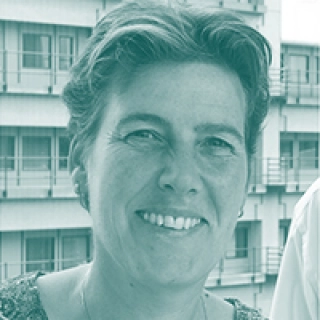
Elizabeth Verdegaal
Department of Medical Oncology, Leiden University Medical Center, Leiden, The Netherlands
Els Verdegaal is Assistant Professor involved in the Experimental Cancer Immunology and Therapy program of the Department of Medical Oncology of the Leiden University Medical Center that aims to implement immunotherapy as treatment modality for patients with solid tumors. She focuses on the exploration of key factors in host-tumor interactions that determine successes and failures in immune control of cancer in order to drive the improvement of our immunotherapeutic strategies.
She heads the group that translates the results of pre-clinical studies into development and use of adoptive T-cell therapy for the treatment of cancer in clinical trials. These trials are performed in close collaboration with the GMP-certified Interdivisional GMP Facility Leiden. Following the publication of a phase I/II study on the adoptive transfer of tumor-specific ex-vivo expanded T-cells for the treatment of melanoma, similar protocols were developed for the treatment of cervical cancer and ovarian cancer. In the context of these studies she published on the involvement of neoantigen-specific T cells in successful adoptive T cell therapy and acquired research grants from the Dutch Cancer Society and others to continue and extent this work.
https://www.lumc.nl
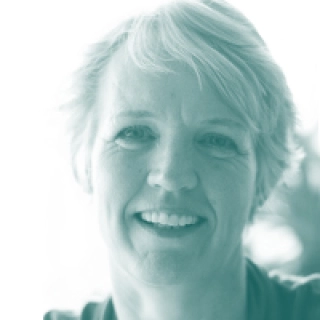
Jolanda de Vries
Radboud Institute for Molecular Life Sciences (RIMLS); Radboud University Nijmegen Medical Centre, The Netherlands
Jolanda de Vries (PhD) is a Professor at the Department of Tumor Immunology at the Nijmegen Centre for Molecular Life Sciences. She was one of the pioneers to translate dendritic cell biology into potential clinical applications. The first clinical phase I/II studies in which patients were vaccinated with DCs loaded with tumor-specific peptides were initiated in 1997. She also developed a novel immuno-monitoring assay that is highly predictive for extended survival after vaccination with DCs. Her primary scientific interest continues along the line of DC-immunotherapy and in particular the migration and imaging of DC. For example, in-vivo imaging of ex-vivo labeled cells using MRI. New opportunities for example preventive vaccination of patients prone to develop cancer at an early age are explored.
https://www.radboudumc.nl/en/research/departments/tumor-immunology
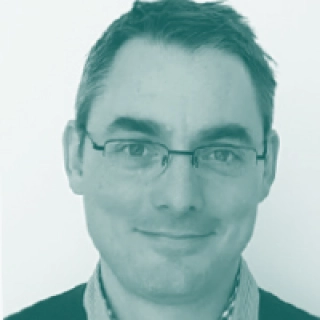
Sébastien Wälchli
Department of Cellular Therapy, Oslo University Hospital-Radiumhospitalet, Oslo, Norway
Sébastien Wälchli is a senior scientist and group leader (translational research group) at the Department of Cellular Therapy at Oslo University Hospital-Radiumhospitalet. The research group in close connection with the immunomonitoring unit is involved in developing immunotherapy solutions such as TCR, CAR and improved/universal cellular systems. SW leads the molecular biology service supporting the TCR platform, which is based on the isolation of TCRs from patients responding to vaccination. He is head of the CAR platform which delivers pre-clinically validated molecules. His group is also developing effector cell for universal use. SW has an MSc in bacterial genetics from the University of Geneva and holds a PhD from a University/Industry program (U of Geneva and Ares Serono) in Molecular Biology. He then performed a postdoc in cellular biology and started his career as a researcher in Immunology 10 years ago. He co-authors more than 50 peer-reviewed articles, is co-inventor of 10 patents and has been the founder of 1 biotech company (Zelluna Immunotherapy). He is a member of different immunological and oncological societies, member of the editorial board of BMC Cancer and co-organizer of the PIVAC meeting 2018 in Oslo.
celltherapy.no

